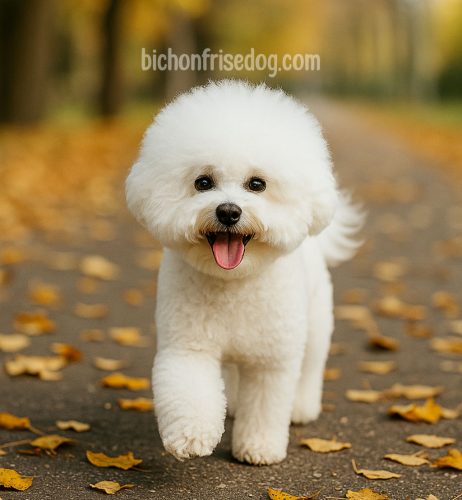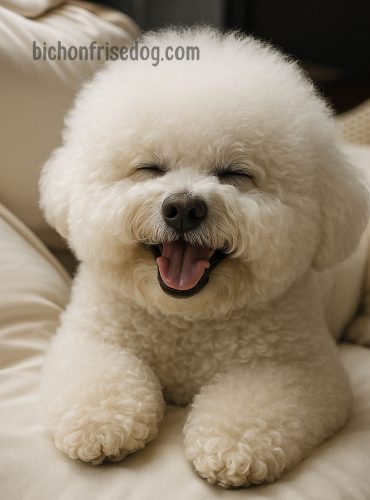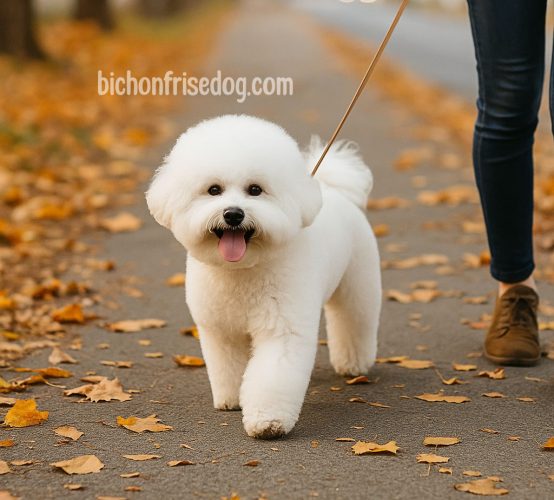If you’ve ever tried to train a Bichon Frise and found yourself negotiating with a dog that suddenly refuses to walk or sits down in protest, you’re not alone. Many Bichon owners ask: Are Bichon Frise stubborn?
The short answer? Yes… and no.
Understanding the answer requires a deeper look into the personality, temperament, and behavior of the Bichon Frise, and how factors like age, training, environment, and even genetics shape their responses.

🧠 Understanding the Bichon Frise: personality vs. temperament vs. behavior
To truly grasp whether your Bichon Frise is stubborn, it helps to first define a few key terms:
1. Personality
A dog’s personality is shaped by both genetic inheritance and life experiences. It’s the individual flavor of your dog’s behavior, what makes them “them”. Just like people, Bichons have distinct personalities, some are naturally more playful and excitable, while others may be calmer and more observant.
🐾 Example: One of my Bichons loved meeting new people from day one, while the other was shy for years and preferred familiar faces.
2. Temperament
Temperament is more about inborn traits, the general disposition a dog has, often influenced by breed. Bichon Frises are known for being:
Friendly
Affectionate
Playful
Alert
Occasionally strong-willed
According to the American Kennel Club (AKC), the Bichon Frise ranks highly for companionship and adaptability, but they can sometimes show an independent streak, which may come across as stubbornness.
3. Behavior
Behavior is the most visible and changeable aspect of your dog’s nature. It’s what you see in daily life, how your Bichon acts in different situations. Unlike temperament or personality, behavior can be shaped over time through experiences, environment, and especially training.
You can think of it like this:
🧬 Personality (who they are) +
🌡️ Temperament (how they’re wired) +
🎓 Training and environment (what they learn) = Behavior (what they do)
This is why Bichon behavior can be modified at any age, as long as the training is consistent and rooted in positive experiences.

🔍 So, are Bichon Frises really stubborn?
The answer is nuanced. Based on over a decade of raising two Bichon Frises, here’s what I’ve observed:
My male Bichon was extremely stubborn as a puppy, he would lie down on walks, refuse commands, and bark excessively for something he wanted.
But with time, age, and training, that behavior faded. At 13, he’s calm, obedient, and easygoing.
On the other hand, some Bichons stay headstrong well into adulthood.
👉 Stubbornness in Bichons isn’t a flaw, it’s often a sign of intelligence and independence.
They like to test boundaries, explore, and get their way… which means training should feel more like a game than a chore.
🐕 Training tips to reduce stubborn behavior in Bichon Frises
1. Use positive reinforcement (always)
Reward desired behavior with treats, praise, or toys. Bichons respond better to encouragement than to scolding.
2. Keep sessions short and fun
Their attention span is short, so aim for 5–10 minute sessions. Use playtime as a reward.
3. Be consistent
Use the same words for commands, and ensure all family members follow the same rules.
4. Clicker training works wonders
This method uses a click sound followed by a treat to mark good behavior. It’s scientifically backed and effective for small breeds.
5. Socialize early and often
Expose your Bichon to new people, pets, and environments. The more they see, the more adaptable they become.
6. Avoid harsh corrections
Bichons can become timid or defiant if they feel threatened. Use calm redirection instead.
7. Teach Impulse Control
Commands like “sit,” “stay,” and “wait” build focus and patience.
8. Walk with purpose
If your Bichon lies down on walks, try:
Switching to a harness to reduce pulling tension on the neck.
Walking with treats and rewarding progress every few steps.
Changing the route to keep things exciting.

🧩 Final thoughts: Bichon Frise and their “stubborn” charm
So, are Bichon Frise dogs stubborn? Sometimes, yes—but it’s usually a sign of intelligence, curiosity, or emotional expression. With the right training and care, their independent streak becomes part of what makes them so lovable.
✨ Takeaway:
Embrace your Bichon’s quirks.
Be patient and consistent.
Keep learning and adapting with your dog.
With time, even the most stubborn pup can become your most loyal companion.
